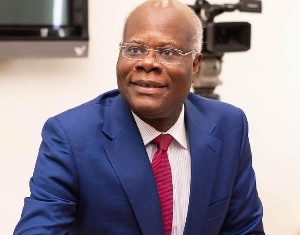- Home - Entertainment
- Lifestyle News
- Entertainment Videos | TV
- Year In Review
- Music News
- Entertainers
- Entertainment Archive
- Entertainment Photos
- Jokes
- Entertainment Headlines
- Ameyaw Debrah
- Brown GH
- Celebrities Buzz
- GH Base
- Ghana Celebrities
- Gh Gossip
- GH Page
- GH Splash
- Hot Gossip GH
- YEN

Entertainment of Tuesday, 9 November 2004
Source: GNA
Staff members of CNC embarks on strike
Ho, Nov. 9, GNA - Staff members of the Centre for National Culture (CNC) in the Volta Region on Tuesday began an indefinite strike over poor working conditions.
Addressing a Press Conference to announce the action, Mr Francis Egbeako, the CNC Local Chairman of the Public Services Workers Union (PSWU) of the TUC expressed concern about the inability of the National Commission on Culture (NCC) to address problems militating against the welfare of staff, effective administration and the performance of its core functions.
Their grievances included "continuous cuts in subvention for personal emoluments and administrative expenses, persistent delays in the payment of salaries and allowances and non-payment of 10 percent salary increment for 2004 by government.
Mr Egbeako said as a result of cuts in administrative expenses the only vehicle available to the regional office has been grounded for lack of maintenance and repairs.
The office typewriters, photocopier and fax machines have also broken down, while there are no stationery to work with. Mr Egbeako said these grievances were communicated to the NCC in Accra on several occasions without success.
He said the situation has become so bad that staff of the CNC in the region have become laughing stocks among their peers and landlords. Mr Egbeako said as a result of the bad situation and the humiliating conditions, nine members of staff have left the Centre this year. He said information available to the staff indicated that work currently going on to put part of the theatre complex in shape for use as regional offices of the CNC would suffer a major set-back as funds allocated for the project have allegedly been diverted for another purpose.
Mr Egbeako observed that the lack of official commitment to making cultural institutions functional casts doubts on official pronouncements of commitment to cultural re-awakening as the driving force behind the country's development.
He observed that countries such as Malaysia, which achieved phenomenal development, were able to do so because they took their culture and cultural identity seriously and made it the focal point of their national agenda.










